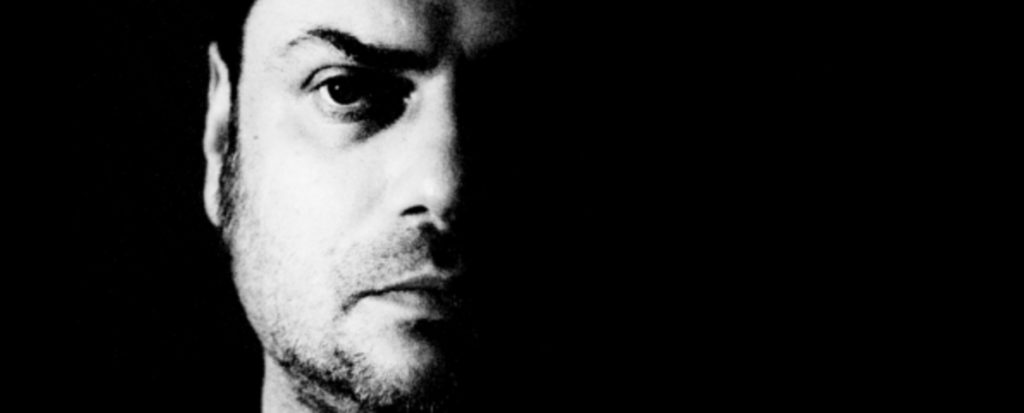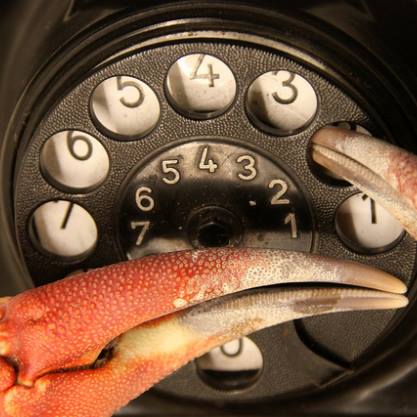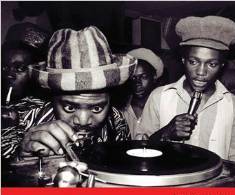
Glasgow scene stalwart JD Twitch, boss of Optimo Music, explains the influence of ‘Bleep Techno’
Optimo Music main man JD Twitch has always had a soft spot for the sub-bass heavy sound of Bleep & Bass, a UK mutation of techno that emerged fully formed from Bradford, Leeds and Sheffield between 1988 and ’91.
It’s the exact reason why he chose to write the foreword to our very own Innate contributor Matt Anniss’s forthcoming book, which is due to be published in the next few months – and is now available to order:
Join The Future: Bleep Techno & The Birth of British Bass Music
With the release of this fantastic new piece of work which goes into great detail about this largely overlooked piece of UK dance music history, Matt has very kindly given us an exclusive extract from the Scottish DJ, producer and label owner’s foreword.
JD Twitch
“When I first went to nightclubs, it felt as if bass didn’t really exist. As an underage teenager sneaking into what were then mostly still known as “discotheques”, the one common thread to the music – the majority of it being ’80s electronic chart Pop – was the lack of bass. Of course, there were basslines and the thud of electronic drums, mostly via the then ubiquitous Linn drum machine, but nobody was feeling the bass. It was a while later, when I first went to a Dub soundsystem party, that I first noticed the air move, saw a speaker cone vibrate from the sheer power of bass and felt that sub resonate through my rib cage. It was an incredible sensation and I instantly knew I was in love with low-end.
House music arrived and club systems got better and often bigger, but still there wasn’t that much bass weight. One of my favourite early House tracks, still much loved to this day, is Phortune’s “Can You Feel The Bass?” I’d flip out if I heard it played in a club but my inner monologue would ponder the question in the title and think, “Well, not really, no.” This didn’t mean early House records weren’t sonically life affirming (they certainly were) but production wise, at least initially, they weren’t a huge sonic leap forward in their production methods.
As house music exploded across the UK, producers here started to take the new electronic strains coming out of the United States and added their own distinctive British twist to them. Artists such as Bang The Party, No Smoke, Baby Ford, Renegade Soundwave and A Guy Called Gerald amongst many others were releasing distinctive records that worked on the dancefloor as effectively as anything coming out of Chicago, New York or Detroit. Many of them added a distinctive bass flavour often lacking on US imports.
Then there was Unique 3. From Bradford, they were the first UK act to really bring the bass – and in particular sub-bass – to UK electronic music in a way that it hadn’t featured before. Britain’s deep affinity with Reggae and the exposure of so many to severely bass-heavy reggae soundsystems, particularly prevalent in Yorkshire, meant it was inevitable that bass was going to become a distinctive factor. Unique 3’s huge (and now sadly somewhat forgotten) influence on what came out of the UK cannot be understated: Hardcore, Drum & Bass, Dubstep and current UK Bass variants all owe something to Unique 3’s “bass-prints”.
In their wake from the Steel City came Warp Records and the wave of Sheffield Bass, or Bleep & Bass or Bleep Techno (or whatever you want to call it) that begat a thousand imitators. Again, an often-overlooked character was majorly responsible for so much of this music, or at least how it sounded: the mighty Robert Gordon. Co-founder of Warp and remixer, engineer and producer extraordinaire, Gordon is as important a figure in dance music history as any legend one may care to mention. The records he mixed or produced had a massive impact on my then DJ partner, Brainstorm, and I. We were obsessed with bass, which along with these futuristic bleeps sounded unlike anything else, especially when blasting out of a huge sound system.
We were very fortunate that our Edinburgh club night UFO, which soon morphed into Pure, had possibly the most powerful system in the country. When the bass drop in LFO’s “LFO” came in the whole building would quiver, glasses would fall off the bar, decades old dust would be dislodged from the ceiling and the music would be drowned out by shrieks and screams of bass derived delight. It really did feel like we had joined the future.”
JD Twitch, September 2019
Twitch has also very kindly selected five lesser-known Bleep & Bass favourites from his extensive collection of turn-of-the-90s records, for those of you who are keen to avoid playing the best-known cuts.
Nightmares On Wax – Sal Batardes
“B-side to the super good LFO remix of ‘Aftermath’, this brings the bass and the offbeat groove.”
Sweet Exorcist – TestFour
“‘Testone’ was a game changer and then Robert Gordon does the perfect remix leaving it almost as it was, just beefing it up a touch and retaining THAT breakdown.”
Epoch 90 – V.L.S.I. Heaven
“Offbeat bass and bleep E-music gem from London.”
Direct – Techno Gone Mad
“Bass and Bleeps went global, though perhaps because depth charge dub bass didn’t always translate as outside the UK they often concentrated on the bleeps. New York in particular was smitten and this is a total bleep-athon from Joey Beltram.”
Overmono – III’s Front
“A 2018 Whites jam that comes from the same sonic headspace. Released 30 years on from Unique 3’s game-changing “The Theme”, this is as state of the art as music for the dancefloor gets, but the DNA of Bleep and Bass is still very discernible at its core.”
JD Twitch headlines “Set It Out presents Join The Future” at Dare To in Bristol on Friday September 27th.




